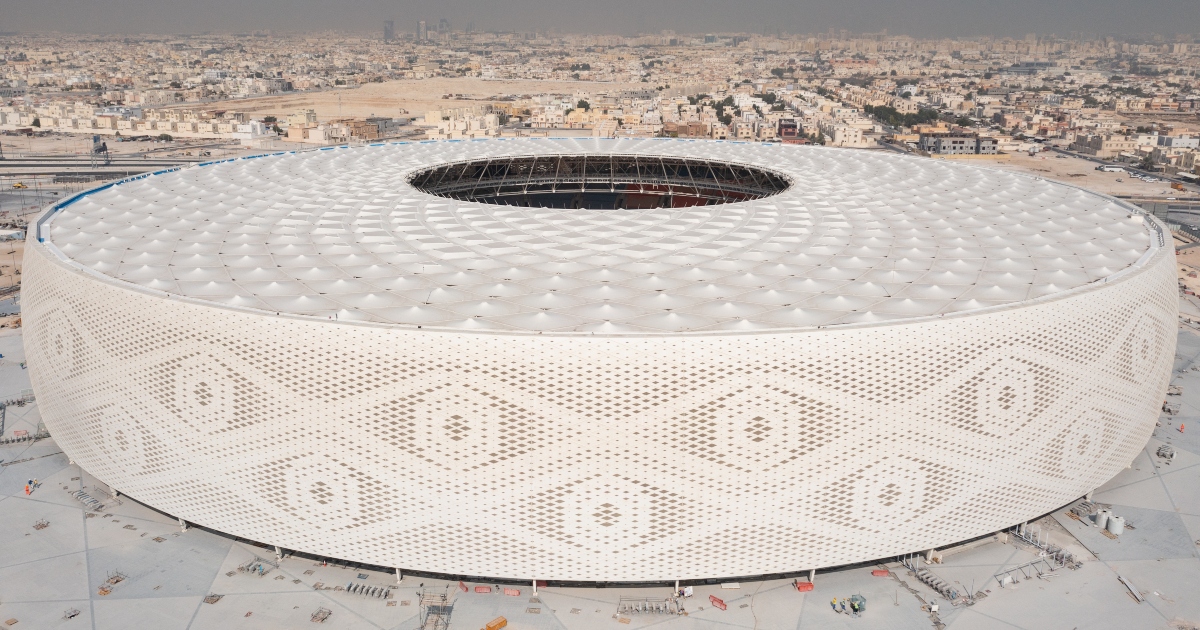

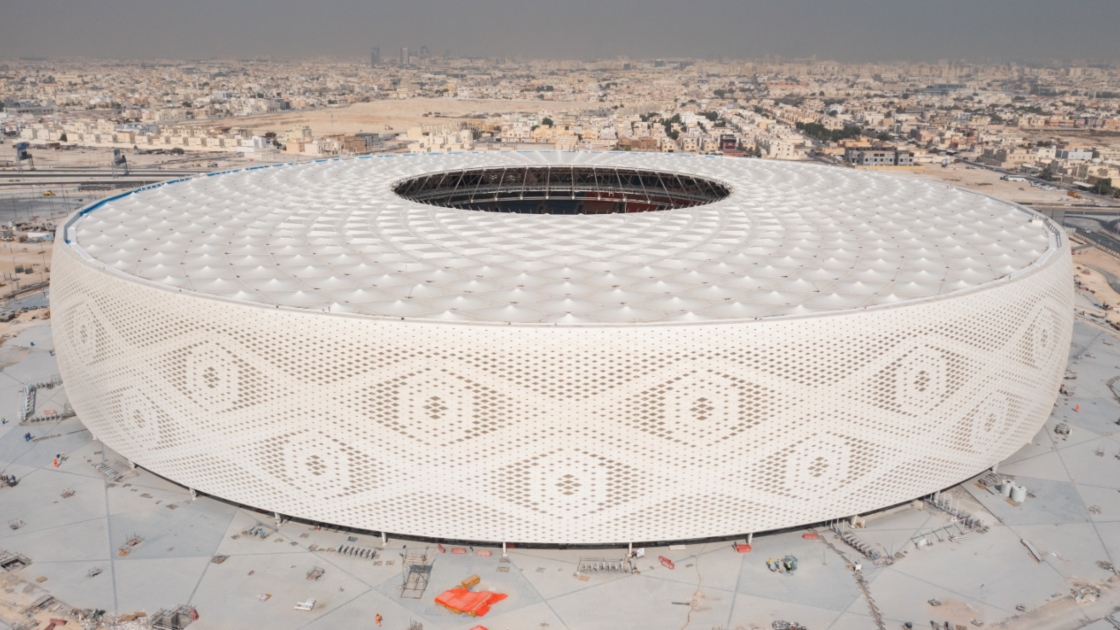
9 July 2021 marks the 500-day countdown to the FIFA World Cup Qatar 2022™.
The first World Cup in the Middle East and Arab world will kick off on 21 November and conclude on 18 December – Qatar National Day.
Qatar’s infrastructure projects, including stadiums and training sites, have reached 95% completion. Four stadiums have been inaugurated, the metro is up and running and a host of expressways have been built.
More than a million fans are expected to travel to Qatar for the tournament, which will be the most compact version of the World Cup in modern history. Fans, players and officials will fly into one airport and stay in one accommodation. They will never be far from the action, as the longest distance between stadiums is just 75km.
To mark the 500-day countdown, we take a closer look at Qatar’s progress on the road to 2022.
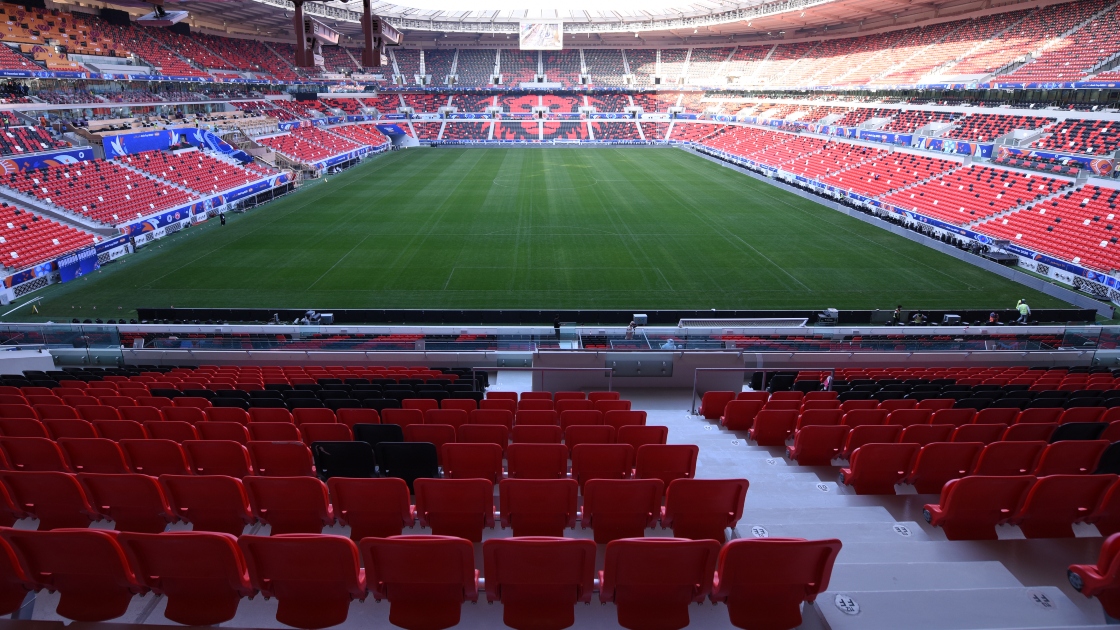
Spectacular stadiums
Eight stadiums will host matches during Qatar 2022. Five have already been completed: Khalifa International, Al Janoub, Education City, Ahmad Bin Ali and Al Bayt. The remaining three – Al Thumama, Ras Abu Aboud and Lusail – will be completed by the end of this year.
Al Bayt – designed to resemble a traditional desert tent – will host the opening match, while Lusail will host the final. The stadiums each have unique designs which celebrate Qatari and Arab culture. Al Janoub pays tribute to Al Wakrah’s seafaring past, while Al Thumama is designed to resemble the ‘gahfiya’ – a cap worn by men across the region.
All the stadiums have dedicated legacy plans. The majority feature a range of community facilities, with some set to be repurposed after the tournament. Seats will be removed from some stadiums and donated to countries which lack sporting infrastructure – to ensure the tournament’s positive legacy is felt far and wide.
Qatar 2022 will also feature the first fully dismountable stadium in World Cup history. Ras Abu Aboud is made from shipping containers which will be repurposed immediately after the tournament and turned into facilities in Qatar and overseas.
All the stadiums are mandated to achieve four-star ratings from the Global Sustainability Assessment System.
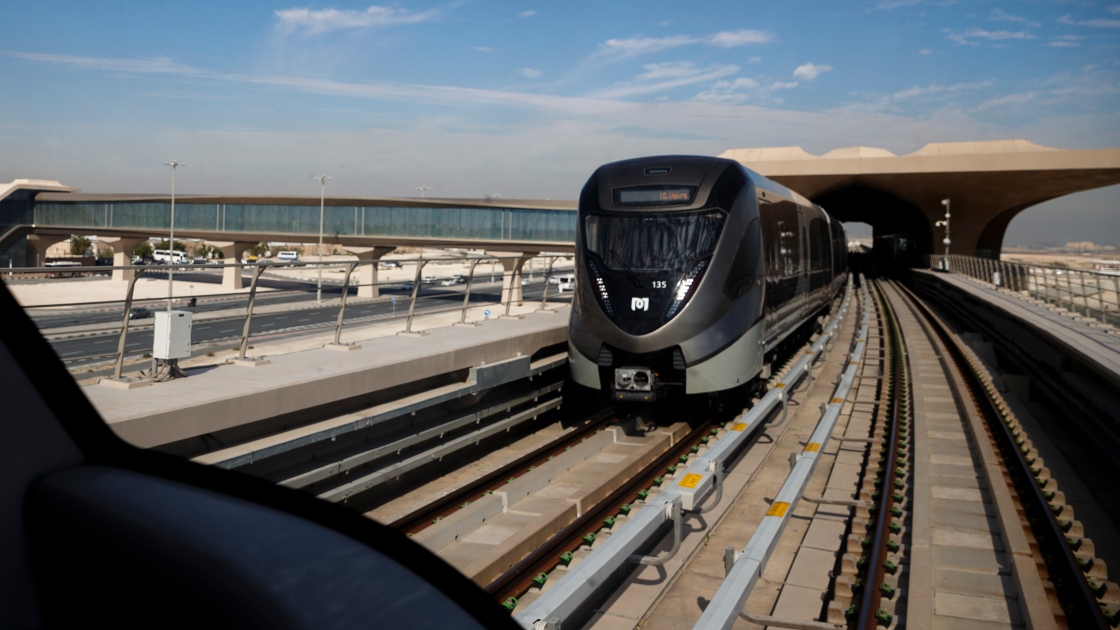
Compact tournament
Fans, players and officials will always be in the thick of the action during Qatar 2022.
Everyone will fly in to a single airport and stay in one accommodation. Fans will never be far from a stadium or tourist attraction. All eight stadiums are no further than 50km from central Doha, meaning short travel times via the Doha Metro or new road network. They will also have the chance to attend more than one match per day during the early stages of the tournament – a unique feature of a modern World Cup.
Players will stay at the same training site throughout the tournament, while long flights between matches will be eliminated – which will help players to remain in peak condition.
The longest distance between stadiums by car will be 75km (Al Bayt to Al Janoub), while the shortest distance will be just 5km (Ahmad Bin Ali to Education City). Five of the stadiums can be reached directly on the Doha Metro, with the others accessible by metro and bus services.
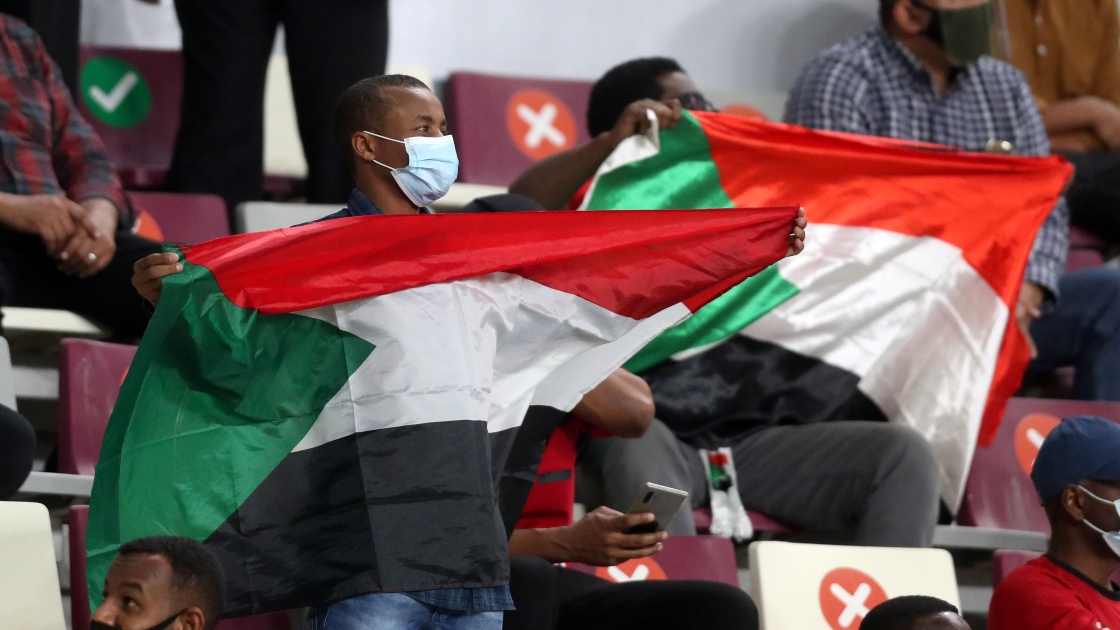
Accommodation
There will be some exciting accommodation options in 2022. Fans will have the chance to enjoy authentic Qatari culture by staying in a desert camp. They could also stay in a ‘floating hotel’ – one of the cruise liners which will be moored in the Arabian Sea with spectacular views of the West Bay skyline. Traditional hotels and serviced apartments will also be available – from two to five stars. Qatar is aiming to deliver accommodation to suit every budget in 2022.
Getting around
The Doha Metro will make it easy to get around during the World Cup. Covering 76km, the metro consists of three lines and 37 stations. The average journey time is just two minutes, while a single ticket costs only QAR 2 (US $0.55). Every station is fully wheelchair accessible and provides barrier-free entry to people with disabilities.
Things to do
The average temperature in November and December is 18-24°C. Qatar will provide the perfect opportunity to enjoy some winter sun for many fans. They will be able to enjoy the desert and beautiful beaches. Qatar is also home to world-class museums and a vast number of shopping malls. There are also many sporting activities – you could play golf at Education City – which features views of a World Cup stadium or tennis at the Khalifa International Squash & Tennis Complex.
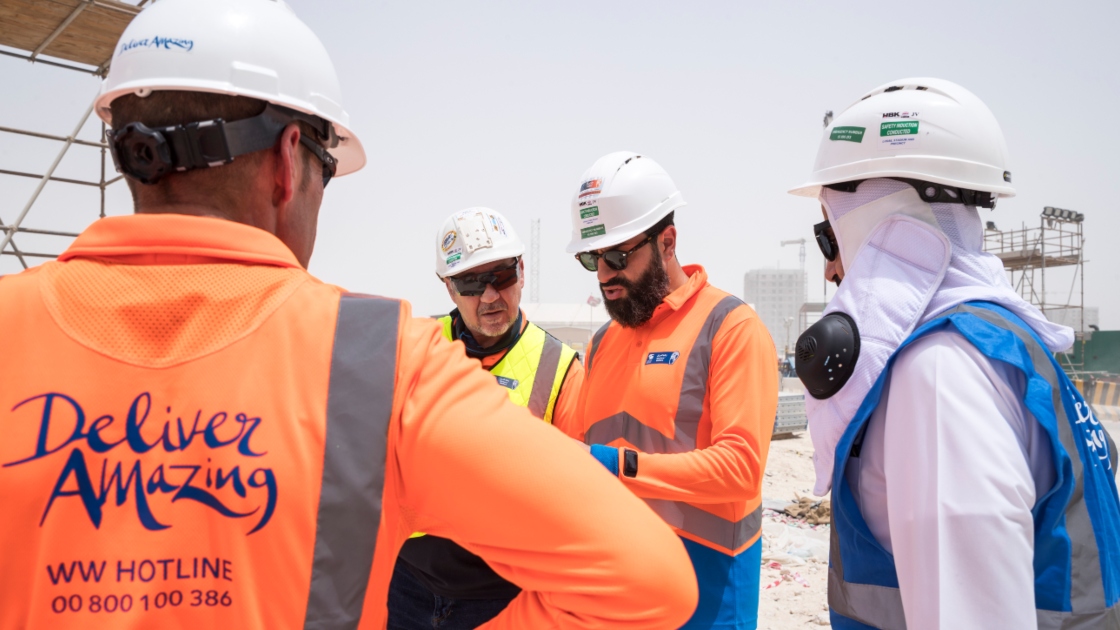
Legacy
Qatar is determined that this World Cup will leave a positive legacy for the country, the region and the world. Helping Qatar deliver a lasting legacy are a range of programmes – notably Workers’ Welfare, Generation Amazing, Challenge 22 and the Josoor Institute.
Qatar has prioritised the health and safety of workers since winning the bid to host the World Cup. The SC developed the Workers’ Welfare Standards (WW Standards) – a blueprint for ensuring the wellbeing, safety, security and dignity of all workers engaged on Qatar 2022 projects. The standards cover the entire cycle of a worker’s employment, from recruitment to repatriation.
More than 30,000 workers have supported the delivery of the tournament, with more than 14,000 currently engaged on stadium and training site developments.
The WW Standards have helped workers collectively reclaim more than QAR 102.9 million (US $28.2 million) in illegal recruitment fees. They have also introduced a vast range of health and safety initiatives, such as health screening, nutrition programmes and state-of-the-art cooling work wear, such as StayQool.
To ensure compliance with the WW Standards, the SC and its stakeholders have interviewed more than 20,000 workers, conducted more than 1,300 accommodation inspections and more than 2,000 construction site inspections.
Click here for further information about Workers’ Welfare.
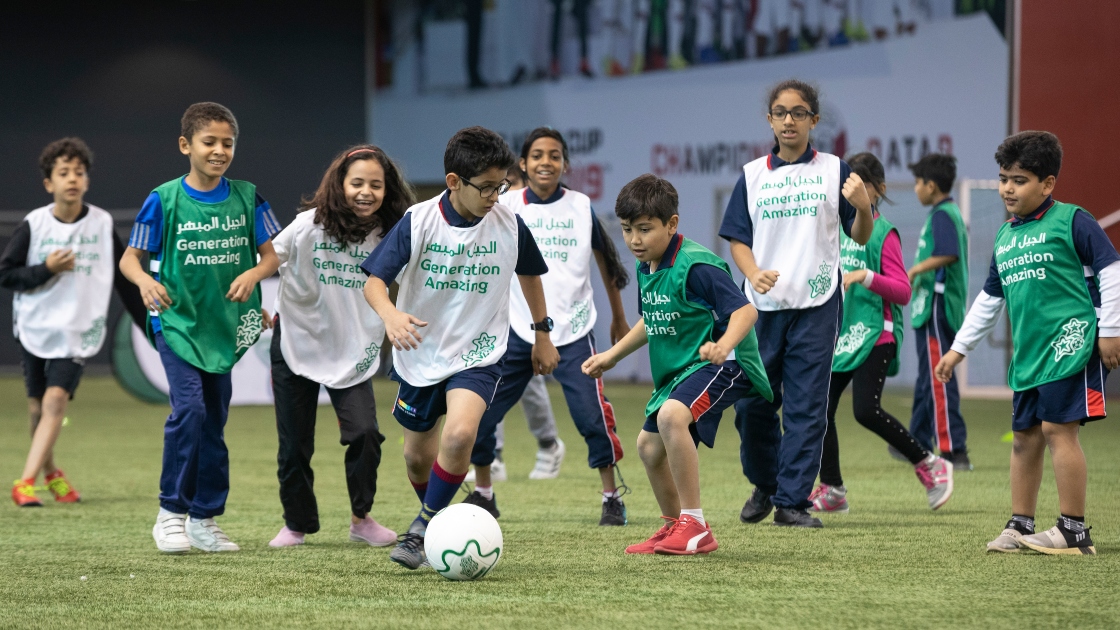
The football for development programme, Generation Amazing, has built 30 community pitches in Qatar, Syria, Lebanon, Jordan, Pakistan, Nepal, India, the Philippines and Oman. The pitches provide a safe space to learn key life skills through football. Since its launch in 2009, Generation Amazing has positively affected more than 725,000 people in 22 countries.
Challenge 22 is an innovation award which supports budding entrepreneurs with funding and access to a broad network of experts. Since 2016, it has worked with 13 start-ups to help them develop and market their products – all of which are set to boost the fan experience in 2022.
The Josoor Institute’s mandate is to ensure the knowledge gained from hosting the World Cup is passed to the next generation of sports and events professionals. Thanks to diploma programmes, networking events and masterclasses, thousands of people have benefitted from education and training related to Qatar’s hosting of the tournament.
Community spirit
Qatar has actively engaged its diverse population in the lead-up to the tournament. Projects such as the Youth Panel, Accessibility Forum and Volunteer Programme have engaged thousands of people on the road to 2022.
More than 370,000 people registered their interest in volunteering – with many of them supporting events in the lead-up to the tournament, including the FIFA Club World Cup™, which was held in Qatar in 2019 and 2021, and the FIFA Arab Cup™ qualifiers.

